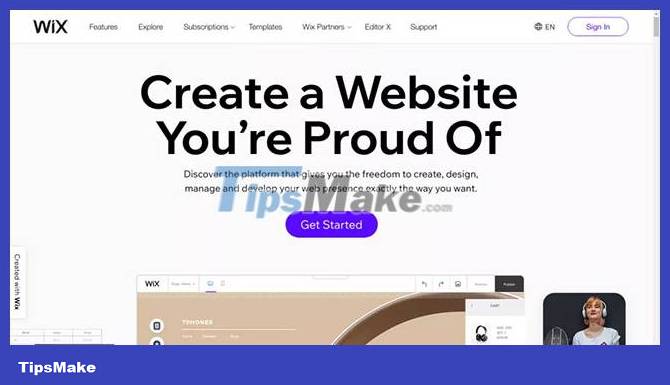What is a website builder?
Website builder, as its name suggests, is an online or offline application that helps you build a website. Back in the day, building websites involved quite a bit of coding, choosing a web hosting service provider, and building something as complex as an e-commerce portal was out of reach for many people. Those days are a thing of the past thanks to website builders, which are the perfect tool for individuals and small businesses to create a website without hiring the services of a web developer.
Why use a website builder?
Even experienced web developers today prefer to start with a website builder. That's because these web development tools can help build websites in a fraction of the time it takes to write code manually.
Even if you are fluent in web languages, specifically HTML, CSS, JavaScript, using a website builder will reduce the risk of making mistakes. You don't have to worry about keeping track of HTML tags or making sure all the elements on the page are aligned correctly.
Besides helping you save time in coding a website, most website builders have a huge catalog of templates, helping you choose an intuitive look for your website. Instead of brainstorming and writing code for different interfaces, you can spend time customizing a template to suit your requirements.
Additionally, a website builder also costs more than hiring a web developer and there are a range of free website builder providers out there.

Types of website builders
There are several website builders to choose from. Although each has its own strengths and weaknesses, you can classify them into two types: Offline and online.
An offline website builder is a desktop application that you download and install on your computer, just like any other application. These give you flexibility when working on your website, regardless of whether you have Internet access or not. When you're done, all you need to do is upload the files to your web hosting account and your website will be live. Popular offline website developers include Blocs, Rapidweaver, and Pinegrow Web Editor.
Besides, there are online website builders that are web-based and do not require installation. All you need is a modern web browser and an Internet connection. Thanks to this convenience, online website builders are quite popular, especially since many of these options offer just as many features and flexibility as offline options. Popular examples of online website builders are WordPress.com, Wix, Weebly, SquareSpace, etc.

How do online website builders work?
Website builders, especially online options, can help you build an entire website without writing a single line of code. Although they differ in features, they all follow the same workflow and provide users with the ability to build websites simply by dragging and dropping elements as needed.
You'll start by browsing the list of templates and choosing the one that best suits your needs. Some website builders have a library of dozens of templates, while other options offer hundreds of templates categorized based on site type.
Templates will often come with a number of built-in elements that you will then have to edit according to your requirements. Besides visual elements, templates will also have some generic text that you need to replace with your own content.
After modifying the template according to your needs, most website builders will also allow you to rearrange different elements, simply by dragging them from their original location and dropping them to the desired location.
As you feel more comfortable, you should also take advantage of the website builder's ability to add new elements and widgets to the template. Most tools will allow you to add images, videos, contact forms, social sharing buttons, etc. Typically, each of these add-on elements offers additional customization options when you have added them to your website.